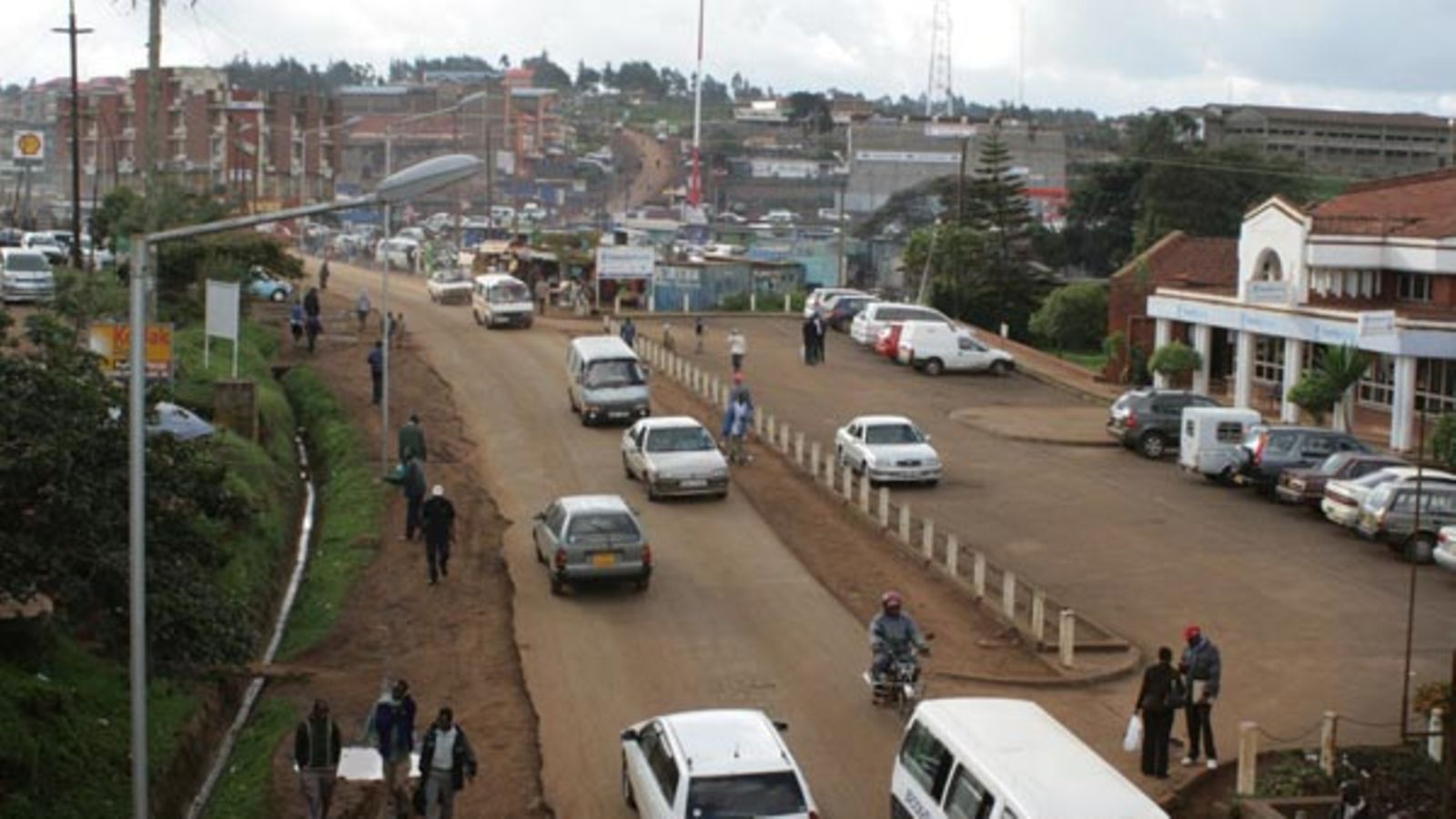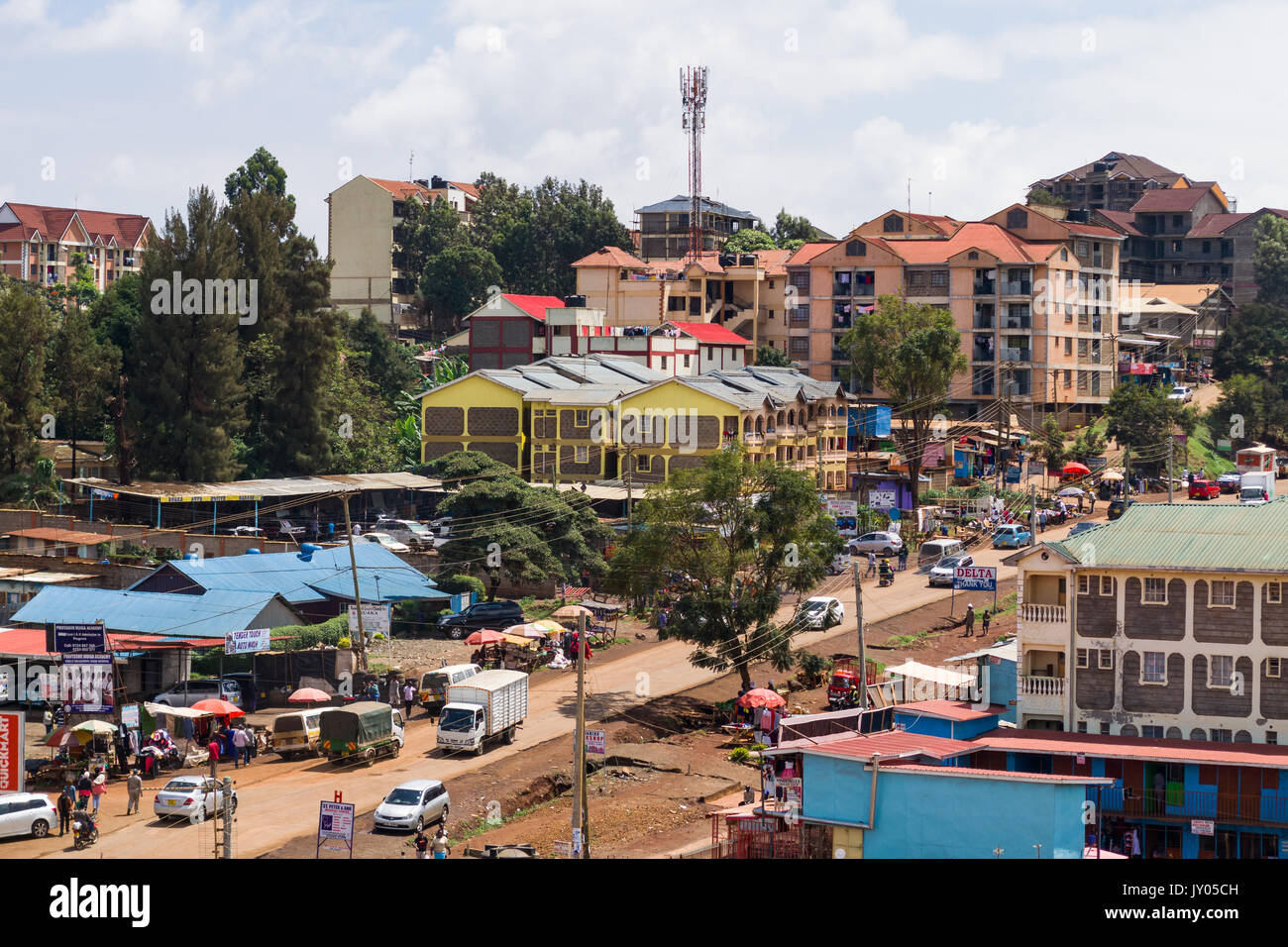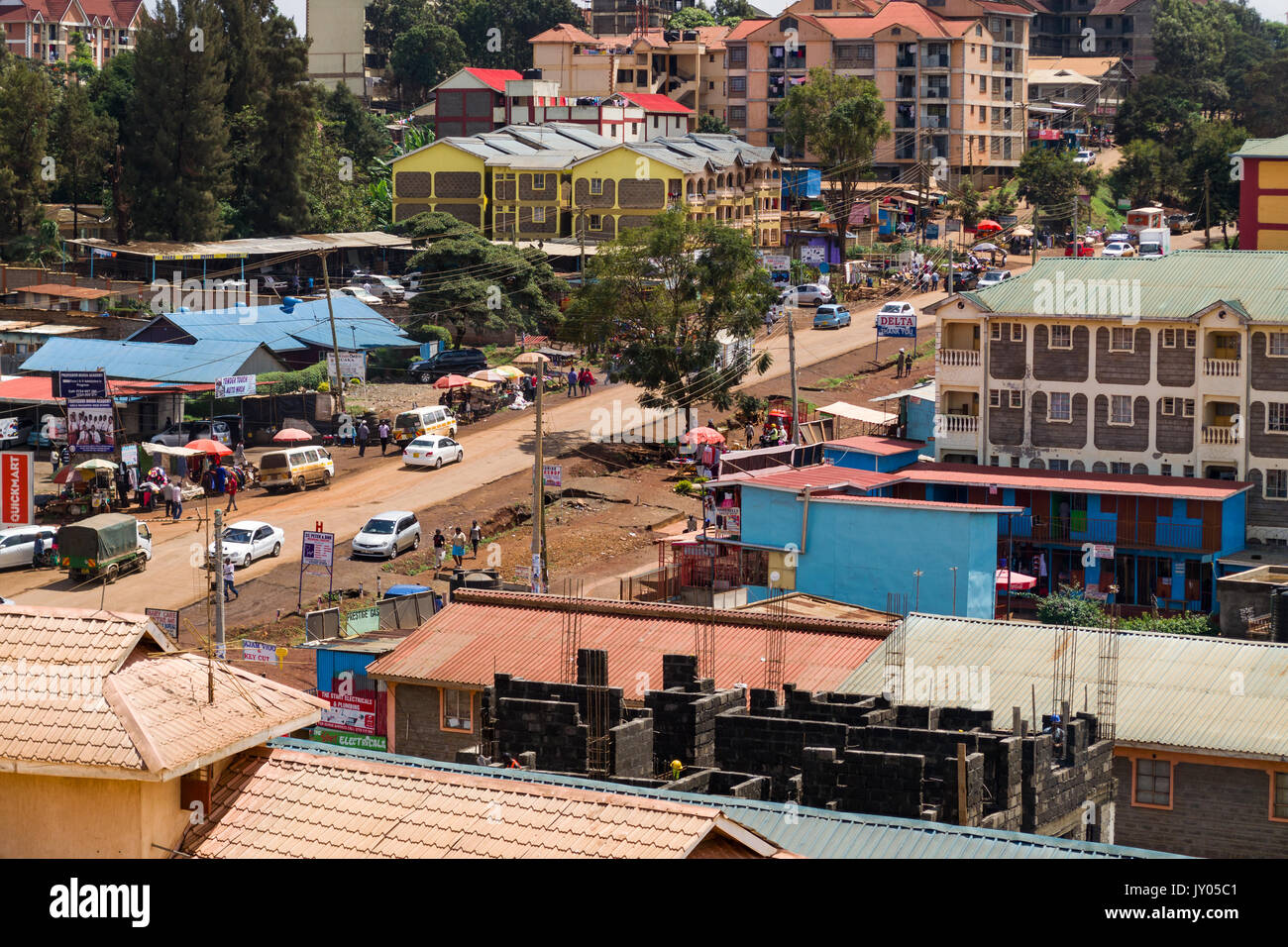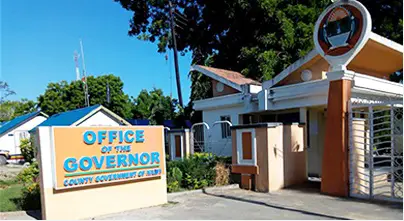Limuru Town, nestled in the scenic landscapes of central Kenya, is a vibrant and charming destination waiting to be explored. With its rich history, friendly locals, and an array of cultural attractions, Limuru Town offers an authentic experience that will captivate your senses and leave you longing for more. From its bustling markets filled with locally produced goods to its picturesque tea estates that stretch as far as the eye can see, Limuru Town is a hidden gem just waiting to be discovered. Prepare to be enthralled by the beauty and warmth of this enchanting town.

History
Limuru Town, located in Kenya’s Kiambu County, has a rich history that dates back to the precolonial era. The town was originally inhabited by the Kikuyu people, who had a strong presence in this region of Kenya. They relied heavily on agriculture, particularly coffee and tea farming, to sustain their livelihoods. The arrival of British colonialists in the late 19th century, however, brought significant changes to the area.
Colonial Influence
During the colonial period, Limuru became a crucial center for the British settlers, who recognized the region’s fertile land and ideal climate for tea cultivation. Large tea estates were established, and the British introduced various farming practices and infrastructure development to boost the tea industry. This led to the town’s rapid growth and the emergence of a diverse community that included both locals and European settlers.
Independence and Postcolonial Era
Following Kenya’s independence in 1963, Limuru experienced further transformation. The town became more accessible through improved transportation networks and saw the establishment of various industries. This period also brought significant political changes, as the local population began actively participating in the democratic process.
Geography
Situated in the Central Highlands region of Kenya, Limuru enjoys a picturesque setting amidst rolling hills, lush tea plantations, and fertile farmlands. The town is approximately 2,285 meters above sea level, providing it with a cool and pleasant climate throughout the year. The surrounding landscape offers breathtaking views and an ideal environment for outdoor activities and exploration.
Serene Countryside
Limuru’s geography includes vast open spaces and peaceful countryside, making it a perfect retreat from the hustle and bustle of city life. The scenic beauty of the region, with its tea-covered slopes and tranquil atmosphere, attracts both locals and tourists alike. Visitors can enjoy hiking, nature walks, and even camping in the surrounding hills, immersing themselves in the tranquility and natural wonders that Limuru has to offer.
Abundance of Water Resources
One notable geographical feature of Limuru is its abundance of water resources. The town is well-known for its numerous rivers, such as Marigu, Karimeno, and Ruiru, which flow through the region. These rivers play a vital role in supplying water to the tea estates, farms, and local communities. Moreover, the presence of these water sources adds to the scenic beauty and biodiversity of the area.

Climate
Limuru benefits from a unique microclimate due to its high elevation. The town experiences a temperate climate with mild temperatures throughout the year. The average annual temperature ranges from 15 to 24 degrees Celsius, providing a refreshing escape from the heat found in other parts of Kenya. The cool climate, combined with regular rainfall, creates ideal conditions for agricultural activities, particularly tea and coffee farming.
Rainfall Patterns
Limuru receives substantial rainfall, with an average annual precipitation of around 1,200 millimeters. The rainfall is relatively evenly distributed throughout the year, with no distinct dry season. However, the months of March to May and October to November are typically the wettest periods, while June to August is generally drier. The consistent rainfall supports vibrant vegetation, lush green fields, and the town’s expansive tea plantations.
Tea Farming
The unique climate of Limuru has made it a prime location for tea farming. The cool temperatures and abundant rainfall create the optimal conditions for tea cultivation, resulting in high-quality tea leaves. The town’s tea estates produce some of Kenya’s finest teas, which have gained international recognition for their superior flavor and aroma. Tea farming remains a significant contributor to Limuru’s economy and an essential aspect of the local culture.
Demographics
Limuru is a diverse town with a population that reflects the multicultural heritage of Kenya. The town has experienced significant growth over the years, attracting people from different ethnic groups and backgrounds. The majority of the population consists of the Kikuyu community, who have historically inhabited the region. However, there is also a significant presence of people from other ethnicities, including Luo, Luhya, and Maasai, among others.
Multicultural Harmony
Limuru prides itself on fostering multicultural harmony, with residents from various backgrounds coexisting peacefully. The diverse population contributes to the vibrant tapestry of Limuru’s cultural fabric, resulting in a rich and inclusive community. This diversity is evident in the town’s various celebrations, where people come together to commemorate different cultural festivals, embracing the traditions and customs of different ethnic groups.
Population Growth
The population of Limuru has been steadily growing due to urbanization and the town’s strategic location near the capital city, Nairobi. Many individuals and families are drawn to Limuru’s serene environment, cooler climate, and proximity to Nairobi’s economic opportunities. With this influx of residents, the town has witnessed infrastructure development, improved healthcare facilities, and an expanded education sector to cater to the needs of the growing population.

Economy
Limuru’s economy thrives on a combination of agriculture, manufacturing, and commerce. The town’s fertile lands and favorable climate make it an ideal hub for agricultural activities, particularly tea and coffee farming. Additionally, emerging industries and the presence of various commercial enterprises contribute to the town’s economic growth.
Agriculture
Agriculture plays a crucial role in Limuru’s economy. The town’s tea estates produce high-quality tea leaves, which are exported to international markets. Coffee farming is also significant, with local farmers benefiting from the region’s favorable conditions for coffee production. Small-scale farmers cultivate a range of crops, including vegetables, fruits, and dairy products, adding to the town’s agricultural diversity.
Manufacturing and Commerce
Limuru is home to several manufacturing companies that contribute to the local economy. These companies produce a range of products, including food and beverage items, textiles, and construction materials. The town also boasts a thriving commercial sector, with various shops, markets, and supermarkets catering to the local population’s needs. Additionally, the presence of bustling trading centers and business enterprises creates employment opportunities for the town’s residents.
Culture
Limuru’s diverse population has led to a rich cultural heritage that is celebrated and cherished within the town. The fusion of different ethnic traditions and customs has given rise to a unique Limuru culture that embraces unity and inclusivity.
Traditional Practices and Festivals
The Kikuyu culture, as the predominant ethnic group in Limuru, remains deeply embedded in the town’s cultural practices. Traditional ceremonies, such as weddings and rites of passage, are celebrated with great enthusiasm and mark significant milestones in individuals’ lives. The town also observes national holidays and hosts cultural festivals that showcase the diversity of the local population, allowing people to appreciate different cultural expressions.
Music and Dance
Music and dance play integral roles in Limuru’s cultural expression. Traditional music, accompanied by unique instruments like the drum and lyre, can be heard during celebrations and cultural events. Additionally, the town has embraced modern music genres, and talented local artists contribute to the vibrant music scene, often using their music to address social issues and promote unity.

Transportation
Limuru boasts a well-developed transportation network that connects it to other major towns and cities in Kenya. The town’s strategic location, situated only approximately 30 kilometers from Nairobi, allows for convenient access to the capital city’s amenities and opportunities.
Roadways
Limuru is easily accessible by road, with well-maintained highways connecting it to Nairobi and other towns in the region. The Nairobi-Nakuru highway passes through the town, ensuring seamless connectivity for both personal and commercial vehicles. Public transportation, including buses and matatus (minibusses), also operate regularly, providing affordable travel options for residents and visitors.
Railway
The upcoming Nairobi-Naivasha Standard Gauge Railway, which forms part of the larger East African railway project, will have a station in Limuru. This railway line will enhance transportation options for both people and goods, facilitating trade and commerce within the region. The railway system will provide an alternative mode of travel and help alleviate traffic congestion on the roads.
Education
Education plays a pivotal role in Limuru’s development, as residents recognize its importance for personal growth and socioeconomic advancement. The town is home to several educational institutions that cater to students of all ages, offering quality education and fostering a passion for learning.
Academic Institutions
Limuru has a variety of schools, ranging from primary to secondary institutions, that provide a well-rounded education to over students. These schools strive for excellence in academics and offer a diverse range of co-curricular activities, including sports, arts, and culture. Additionally, the town is also home to tertiary institutions that offer vocational training, helping students acquire practical skills relevant to the job market.
Access to Education
Limuru’s commitment to education is evident in the accessibility of educational institutions throughout the town. Parents and guardians have ample options when selecting schools for their children, both public and private. The government has also invested in building and upgrading school infrastructure to accommodate the growing population, ensuring that education remains a priority for all residents.

Landmarks
Limuru boasts several landmarks that showcase the town’s historical, cultural, and natural significance. These landmarks serve as attractions for both tourists and locals, offering glimpses into the town’s rich heritage and scenic beauty.
Limuru Tea Plantations
The iconic tea estates of Limuru are a must-see for visitors to the town. Spanning across vast expanses of rolling hills, these tea plantations offer breathtaking views and a chance to witness the meticulous process of tea farming. Visitors can take guided tours to learn about tea production, from plucking tea leaves to processing and tasting the final product.
Tigoni Botanical Gardens
The Tigoni Botanical Gardens, located in the outskirts of Limuru, are a true paradise for nature enthusiasts. The gardens contain a wide diversity of flora, including exotic and indigenous plant species. Visitors can explore the well-maintained trails, take leisurely walks, and enjoy the tranquility of this natural haven. The gardens also serve as an educational center, promoting conservation and environmental awareness.
Notable People
Over the years, Limuru has been home to individuals who have left a mark on various fields, including politics, sports, and the arts. These notable people have contributed to the country’s development and brought honor to Limuru through their achievements.
Jomo Kenyatta
Jomo Kenyatta, Kenya’s first president, was born in Gatundu, a village near Limuru. Kenyatta played a pivotal role in Kenya’s struggle for independence and went on to become a prominent leader in the postcolonial era. His vision and leadership shaped the nation’s trajectory, and he remains an iconic figure in Kenyan history.
Lorna Kiplagat
Lorna Kiplagat, a renowned long-distance runner, hails from Limuru. She has represented Kenya in various international athletics competitions and has achieved remarkable success, setting world records and winning numerous marathon events. Kiplagat’s determination and athletic prowess have made her an inspiration to aspiring athletes, both in Limuru and around the world.
In conclusion, Limuru Town is a captivating destination that offers a unique blend of history, geography, culture, and natural beauty. From its colonial past to its multicultural present, this town has thrived amidst the changing landscape of Kenya. Whether it’s exploring the tea plantations, immersing oneself in the town’s diverse cultural festivities, or simply enjoying the tranquil countryside, Limuru promises an unforgettable experience for anyone fortunate enough to visit.




